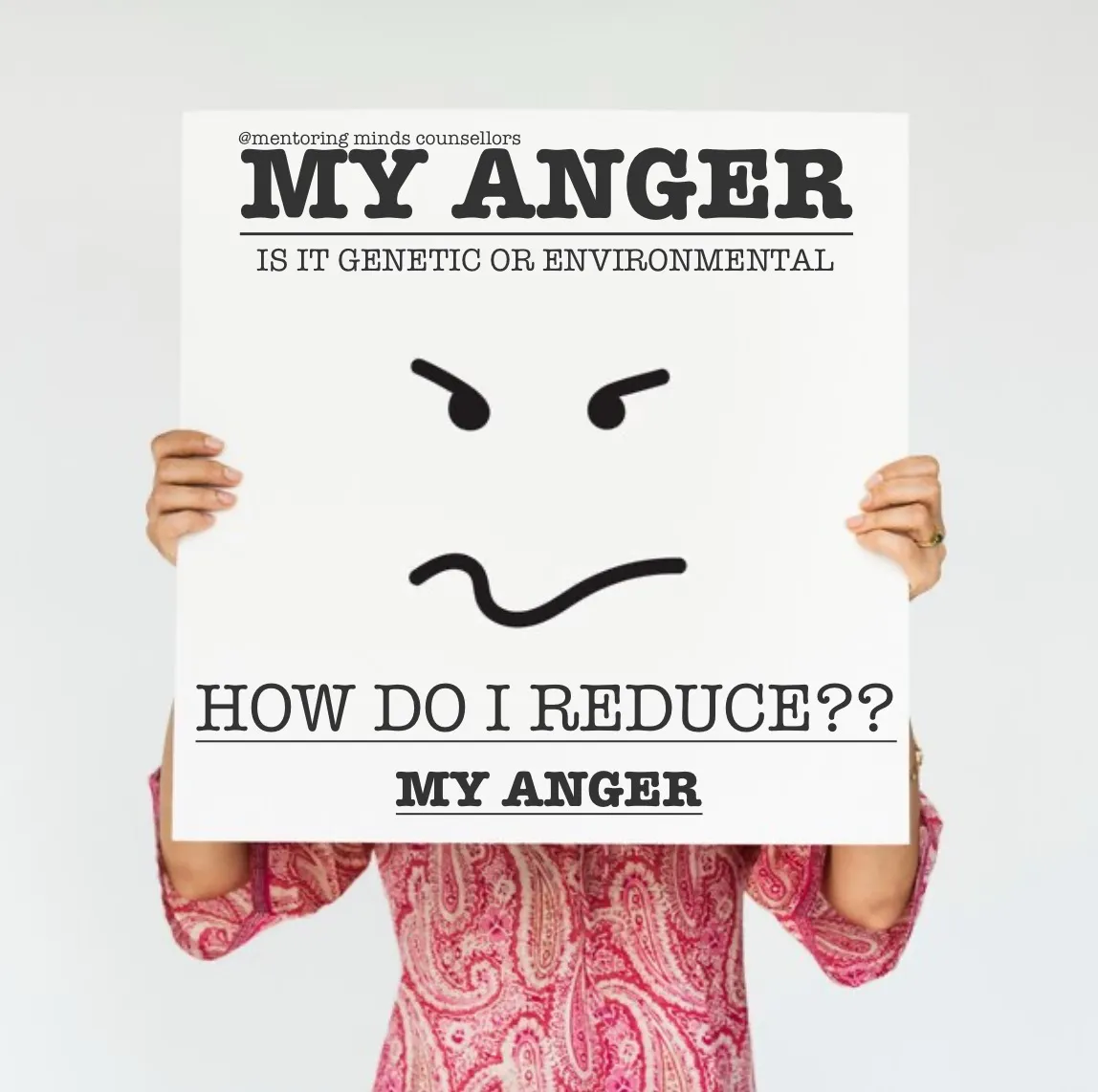Anger is a natural human emotion. However, when it becomes frequent or intense, it can impact your well-being and relationships. Understanding whether your anger is driven by genetics, your environment, or a combination of both is crucial in finding ways to manage it effectively
How can it be through Genetics?
Anger, like many traits, can have a genetic component. Some people may have a predisposition to react more intensely in stressful situations due to their genetic makeup. As per multiple researches it has been understood that certain genes related to neurotransmitters (such as serotonin and dopamine) can influence how we manage our emotions, including anger. If you notice a family pattern where many relatives struggle with anger management, it’s possible that genetics play a role.
How can it be Environmental?
On the other hand, the environment in which you were raised has a significant influence on your emotional responses. However, if one grew up in an environment where anger was frequently expressed (whether through arguments, violence, or tense interactions), you might have learned to mirror these behaviors. Stressful life events, abuse, or exposure to high-conflict situations can also shape your reactions to anger.
How to Identify the Source of Anger:
- The Family Patterns:
If you find that several people in your family have struggled with managing anger or tend to react impulsively, it could be a genetic tendency. However, genetics alone don’t determine behavior; family dynamics also matter. - The Upbringing:
Think back to how anger was handled in your childhood home. Was it expressed openly, or was it suppressed? Did you learn to use anger as a coping mechanism, or was it discouraged? These environmental factors play a significant role in shaping your emotional responses. - The Triggers:
Take note of what causes you to get angry. Are there specific situations, people, or stresses that seem to set you off? Understanding these triggers can help you distinguish whether your anger is more related to past experiences (environmental) or if it’s more of an innate reaction (genetic). - My Emotional Regulation:
If you find that your anger is tied to difficulty controlling emotions, it could be a sign of environmental influence, like trauma or learned behavior. But if anger is simply a knee jerk response, it could be genetically influenced.
How to Reduce Anger?
- Practice Self-Awareness:
The first step in reducing anger is acknowledging it. Start by observing your emotional responses and identifying situations that trigger anger. Our pre-frontal cortex is designed in such a way that once we write down the information, it is one of the finest way to help us to finalise the information and get it out from our brain and once it is out, our brain feels relaxed. Journaling can be helpful in keeping track of your thoughts and feelings. - Breathe to Relax:
Mindfulness, meditation, and deep-breathing exercises can calm your mind and body. By practicing mindfulness, you become more attuned to your emotions, enabling you to catch anger before it spirals out of control. Deep-breathing exercises can lower your physiological response to anger, helping you to stay calm in tense situations. - Exercise:
Physical activity is a great outlet for pent-up anger and stress. Regular exercise can release built-up tension and increase the production of mood-enhancing endorphins, which help in regulating emotions. Even a short walk or yoga session can be effective. - Express Your Emotions:
Often, anger stems from misunderstandings or frustration in communication. Learning how to express yourself calmly and assertively without being passive or aggressive can reduce feelings of resentment and anger. Practice listening without judgment and using “I” statements to communicate how you feel. - People who understand You:
Surround yourself with people who are understanding and supportive of your efforts to manage anger. Talking to trusted friends or family members when you feel angry can provide emotional relief and reduce the chances of an outburst.
Conclusion
We at Mentoring Minds Counsellors understand that Anger is complex it can be influenced by both genetic factors and environmental circumstances. Understanding whether your anger is more genetically or environmentally driven is important for creating an effective plan to manage it. Regardless of its origin, the key to reducing anger lies in self-awareness, emotional regulation, and learning healthier coping mechanisms.


Leave a Comment